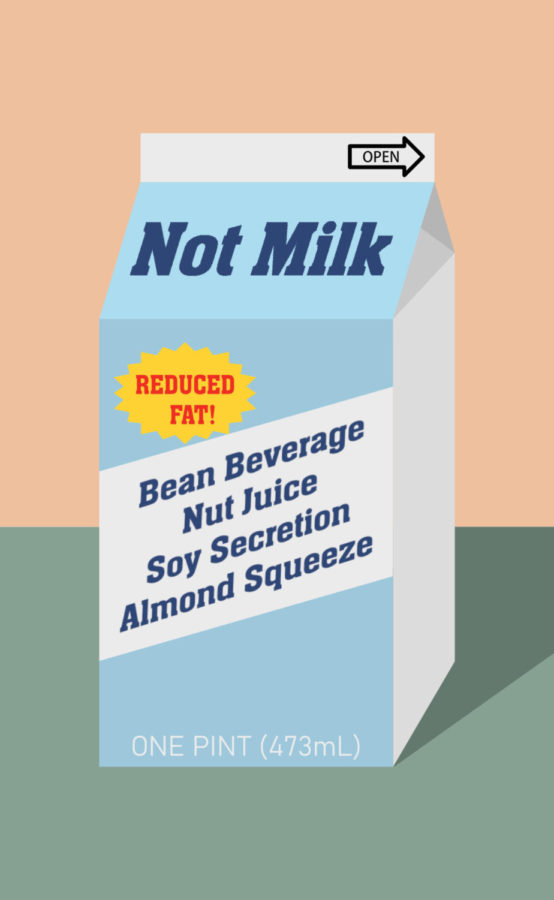Got milk? Are you sure?
March 10, 2023
A plague has risen across America. We live in a world where any viscous white liquid can be labeled as milk. How did this happen?
According to the Oxford English Dictionary, milk is a “whitish fluid, rich in fat and protein, secreted by the mammary glands of female mammals (including humans) for the nourishment of their young, and taken from cows, sheep, etc., as an article of the human diet.” So how then can companies like Almond Breeze and Silk label their nut juices as milk?
Many rightfully point out that there is a need for an environmentally friendly milk alternative, however, this cannot be found in almond milk. Multiple studies have found that almond milk has a horrible impact on the environment, including harming the bee population by requiring huge amounts of bees to pollinate these artificial ‘almond forests,’ putting the bee population at risk.
Almond farming also requires large amounts of water, amounting to 1.1 gallons per almond. Then considering there are approximately 384 almonds used to produce a standard half-gallon carton of almond ‘milk,’ your dairy alternative requires almost 423 gallons of water each time you go to the store. While dairy milk certainly has its toll on the environment, almond milk is not the environmental savior it is said to be.
Another argument that is often made on behalf of the need for non-dairy ‘milks’ is the fact that many people cannot consume dairy products. The response to that is simple, why do you feel the need for what you’re consuming to be called milk? This is no more ridiculous than the plant-based meat alternatives insisting on having names akin to well known meat dishes, something which seems completely unfounded. While there is a clear need for both alternatives, why must they take the name of the original? Shouldn’t it be made more clear that they are substitutes or alternatives, not equals?
When SUNNYD and Yoo-hoo, everyone’s favorite “orange flavored citrus punch” and “chocolate-flavored beverage” are rightfully blocked from being called orange juice and chocolate milk, how then can soy and almond milk be given the name of milk? They hold just as much relation to natural milk as the aforementioned do to their natural counterpart. Where is the consistency? There are naming laws for a reason, and it seems that almond and soy ‘milks’ have been able to skirt them for too long. Even according to the experts, “An almond doesn’t lactate, I will confess,” said Food and Drug Administration Commissioner Scott Gottlieb, at a Politico summit.
You may still be of the opinion that though unfortunate, this confusion in terminology is benign, however, the differentiation between these two products can still present issues. Dairy products have been a staple of the standard American diet for decades now, and when consumers think of milk, the term carries various connotations of a specific nutritional profile and taste. How then can it be deemed fair that alternative products can capitalize on standardized dairy terms in order to take advantage of the brand we associate with milk?
Alternative ‘milks’ may appear as to have learned their lesson, listing their products as “almondmilk” or “soymilk.” While this may be enough to dodge future lawsuits and regulations, it is not enough to stop the ideas in people heads. The fact of the matter is that no matter how the word is stylized, the people still think milk. At this point it should be easy to see why this consumer confusion is not only a problem, but one that hinges on the use of a word, which could easily be solved.
With all of the arguments being made above, it should not be hard to see why almond and soy ‘milk’ should not have claim to the word, but we also shouldn’t have to say any of them. When it comes down to it, our argument could have ended with our first paragraph, when we presented the definition of milk. This definition simply does not fit almond and soy products. At its very basis, soy and almond milk shouldn’t be called milk, simply because they aren’t milk.
We leave you with some alternatives we think are more fitting:
- Bean beverage
- Nut juice
- Soy secretion
- Semisolid Coconut Dilution
- Milk flavored almond squeeze






















